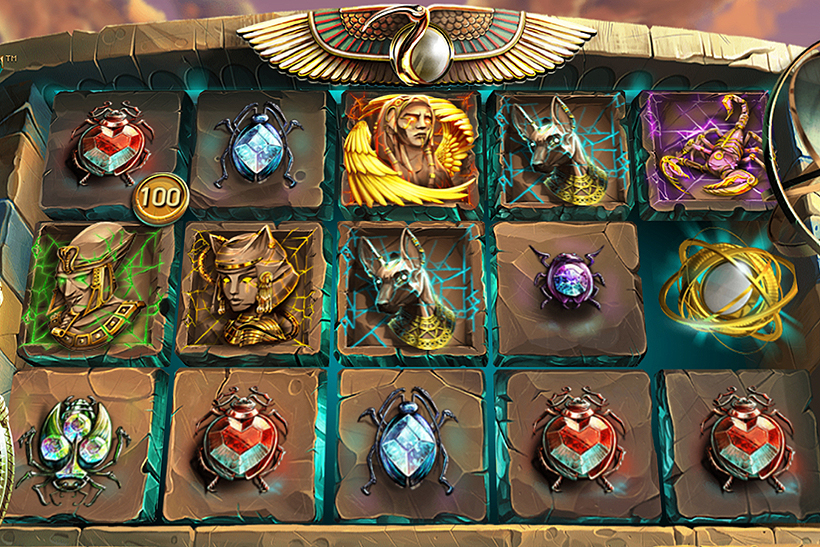How Does Slots and Old Slot Machines Work
I decided to collect several articles in one and go deeper into the topic of how math of slots is arranged in online casinos, this is the first article of a series, there will be more articles and videos on this topic!
How Does Slots And Old Slot Machines Work
Slots are the most popular games in any casino, however most people don’t know how they really work. Some people have an absolutely wrong idea about the essence of gaming machines systems, while others, on the other hand, try to benefit from the lack of knowledge of the rest of the gaming community.
The purpose of this article is to explain in detail how the slot machines are actually made and how do they work. As soon as you get an idea of the internal systems of slot machines, you can understand for yourself how much they really attract you, depending on your character. Playing slots can be fun, but slots for a variety of reasons are super-profitable casino games, and not only because of the algorithm of their work.
Gambling machines use random numbers generator
First slot machines that worked on simple coins used a random numbers generator, as well as modern slots do, and as well as any other casino games do. In a certain sense, the roulette wheel, the deck of cards and even the pair of dice are random numbers generators. Modern slots use a computer to generate random game situations, which determine the winnings.
It is very important to understand that the result of each spin is really random. Games are not based on any cycles, even getting the jackpot is not tied to any specific predicted algorithm. A gaming machine can not be either “charged” or “dead”. So it can only seem, but in reality it’s not possible to predict the behavior of the machine, just as it’s impossible to predict the next card from the deck.
The casino always has an advantage over the player
This is a fact, it is applicable to any casino game. The casino gets an advantage on the basis of mathematical expectation and high turnover. Any winning combination is paid out slightly lower than the probability of winning.
Take a roulette ,for example. The chance that a specific number will fall out is 37 to 1. At the same time, the bet on the number is paid at a rate of 35 to 1, and one does not have to be a genius to understand what the casino profits in this situation are.
Gambling machines work on the same principle.
Slot machines usually have three or five reels
A reel is, in fact, an image that “scrolls” on the screen of a slot machine. Each reel displays several symbols, and if these symbols are aligned in a certain way, you win. The lower the probability of any combination, the higher the payout.
When the gaming machines just appeared, they were mechanical, and reels were really spinning wheels, sometimes of quite impressive size, but modern slots are controlled by computer and in most cases it’s just an image on the screen.
However, both in mechanical and modern gaming machines the winning depends exclusively on the random numbers generator, whether mechanical or computer.
The position where reels stop is called “stop” in mechanical gaming machines
Reels on early slot machines could stop on one of the symbols or on the empty space between the symbols. At that time, the chance of getting each symbol was approximately the same, however in modern slots the situation is somewhat different and these values can vary.
The first slot machines had only 10 “stops” per wheel, while modern slots have the number “stops” from 30 to 50. The more “stops” are there on each reel, the less is chance to win and thereby, respectively, the higher are possible payouts. If you play a game with 10 “stops” on each reel, with equal chances of getting each of them, your chances of collecting a combination are 1/10 per 1/10 per 1/10, that is 1 out of 1,000. If the payout for getting a combination is significantly lower than this value, you lose money.
Modern slots can adjust this value with the help of balancing algorithms.
The balancing system controls how often the reel stops at a specific position.
For example, you play a slot, with 10 symbols on each reel. However, one of the symbols is special, and can pop up only once from 100 spins. In this case, the chance of getting three such symbols will be 1/100 per 1/100 per 1/100, that is, 1 out of 1,000,000! In theory, for this combination you can be offered a win of $1 million at a bet of $1, and then the bet will not be loss-making at a long distance. Casinos like to make such offers to attract players, and players really love them.
Other symbols pop up in half of all spins, in this case the probability of collecting three symbols is 1/2 per 1/2 per 1/2, or 1 out of 8. If the payout for such a combination is 2 to 1, then the casino has a huge mathematical advantage. While the player gets the impression that he wins fairly regularly.
Nominal determination of probabilities
Each modern gaming machine has a list of nominal probability definition of popping up of each possible combination, not just of winning ones. Of course, they are designed so that the casino has always an advantage.
Slot machines and game software developers keep such list in secret, so players never know the exact data on the percentage of payouts on each slot, the advantage of casinos and other similar indicators. We only operate the data that independent auditors conduct by testing every slot.
The last thing you need to understand is how the percentage of payouts is determined
This is the mathematical expectation of how much the slot machine will give as a win on a long stretch of time. For example, the machine is configured for 97% of payouts at a long distance, then the casino takes, conditionally, $3 from every $100.
The actual percentage of payouts is somewhat different from the expected one, and the smaller the number of spins is, the more significant is this difference, but at a long distance, on a conditionally infinite time interval, this indicator will almost exactly correspond to what was stated. In any case, the casino always wins.




